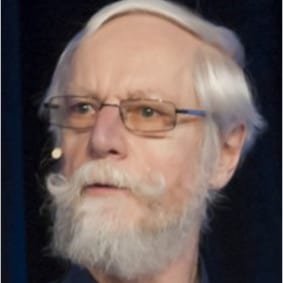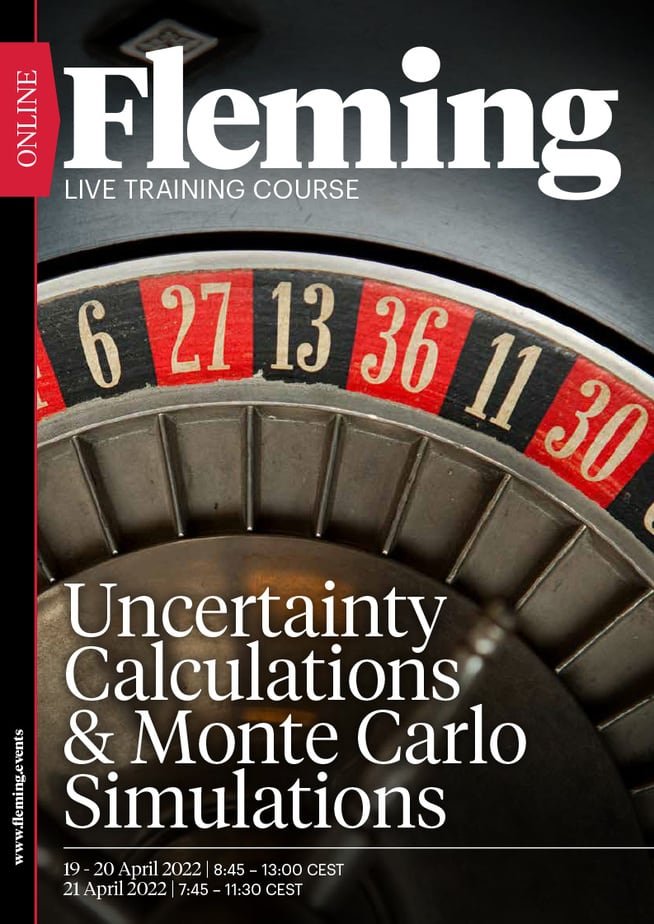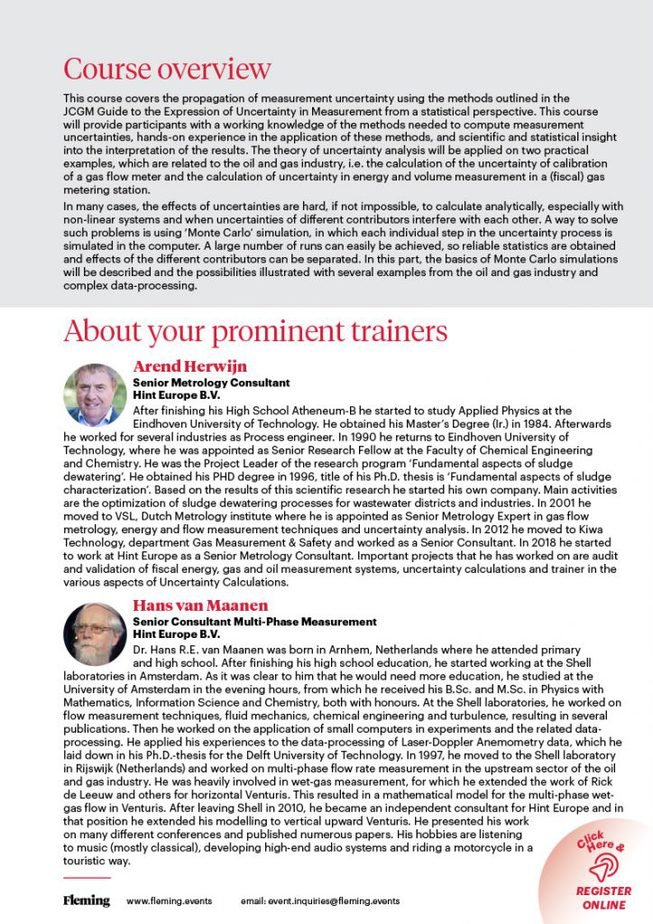Course description
This course covers the propagation of measurement uncertainty using the methods outlined in the JCGM Guide to the Expression of Uncertainty in Measurement from a statistical perspective. This course will provide participants with a working knowledge of the methods needed to compute measurement uncertainties, hands-on experience in the application of these methods, and scientific and statistical insight into the interpretation of the results. The theory of uncertainty analysis will be applied on two practical examples, which are related to the oil and gas industry, i.e. the calculation of the uncertainty of calibration of a gas flow meter and the calculation of uncertainty in energy and volume measurement in a (fiscal) gas metering station.
In many cases, the effects of uncertainties are hard, if not impossible, to calculate analytically, especially with non-linear systems and when uncertainties of different contributors interfere with each other. A way to solve such problems is using ‘Monte Carlo’ simulation, in which each individual step in the uncertainty process is simulated in the computer. A large number of runs can easily be achieved, so reliable statistics are obtained and effects of the different contributors can be separated. In this part, the basics of Monte Carlo simulations will be described and the possibilities illustrated with several examples from the oil and gas industry and complex data-processing.






